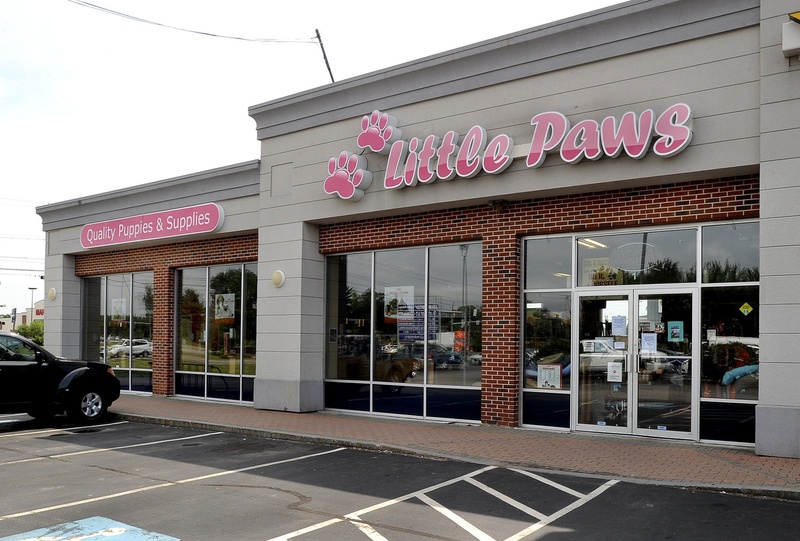SCARBOROUGH – The state has lifted its quarantine on the pet store in Scarborough that sold two puppies that were later diagnosed with parvovirus, but the store’s owner says she has decided to shut it down.
Maine’s animal welfare office confirmed Monday that the quarantine on the Little Paws Pet Shop was lifted Saturday, allowing the store to resume selling puppies.
But Barbara Cross said Monday night that she plans to close the store after she has sold all of her remaining puppies.
As of Monday, she had 29. Cross said it will take about three weeks to sell the dogs.
“It’s very sad and very unfortunate,” said Cross, who has been in business for about 14 months. “But I definitely don’t have thick enough armor for these protesters.”
Little Paws Pet Shop, at 456 Payne Road, was quarantined in February and again in late July because of two cases of parvovirus in puppies that it had sold.
Parvovirus is a highly contagious and potentially fatal disease that occurs mostly in young dogs, and can afflict kittens. It is not transmitted to humans.
Little Paws was quarantined in February after a Siberian husky puppy it had sold died of parvovirus. The pet shop was allowed to resume selling puppies when the quarantine was lifted.
It was quarantined again on July 29 after a 9-week-old ori-pei was hospitalized for parvovirus within a week of when it was sold at Little Paws.
The quarantines triggered protests by Maine Citizens Against Puppy Mills.
Cross said in July that she planned to sell the store, in part because of pressure from protesters who oppose commercial-scale breeding.
On Monday, Lynne Fracassi of Naples, founder of Maine Citizens Against Puppy Mills, said, “They are closing. … Oh, my goodness – that was my goal.”
Anyone who brings puppies into Maine from out of state risks transmitting parvovirus, coccidia, giardia, pneumonia and distemper – all common illnesses among puppies, especially those born and raised during the first few months in unsanitary conditions, Fracassi said. Parvovirus is passed through the feces of infected animals.
“The education we’re doing is making a huge difference,” she said. The organization has grown from 300 members in October to about 1,700, she said.
Cross said when the state quarantined the store in late July that she took the matter very seriously and was working with state regulators to address the problem.
Canine parvovirus cannot be transmitted to humans.
Staff Writer Dennis Hoey contributed to this report.
North Cairn can be contacted at 791-6325 or at: ncairn@pressherald.com
Send questions/comments to the editors.


